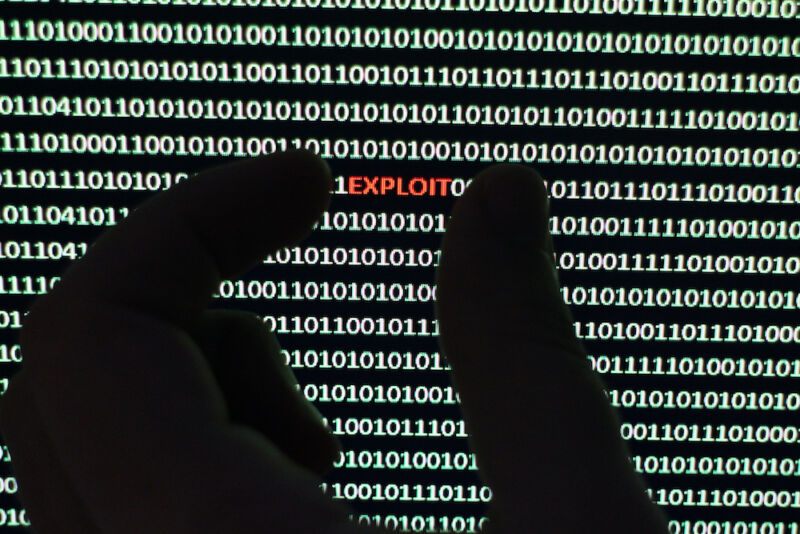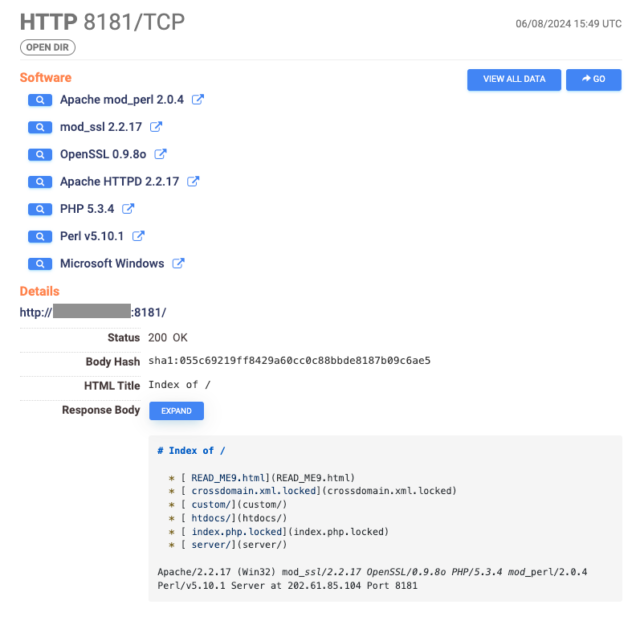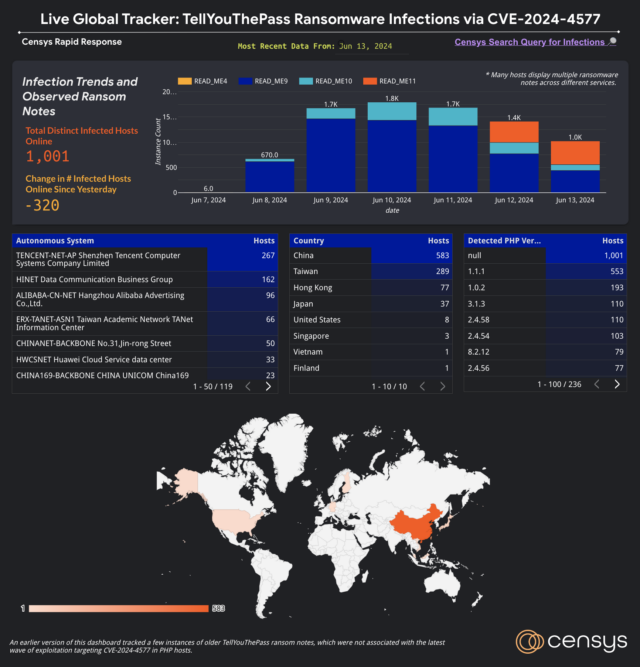
Getty Pictures
Ransomware criminals have shortly weaponized an easy-to-exploit vulnerability within the PHP programming language that executes malicious code on internet servers, safety researchers mentioned.
As of Thursday, Web scans carried out by safety agency Censys had detected 1,000 servers contaminated by a ransomware pressure often called TellYouThePass, down from 1,800 detected on Monday. The servers, primarily situated in China, now not show their common content material; as an alternative, many checklist the location’s file listing, which reveals all recordsdata have been given a .locked extension, indicating they’ve been encrypted. An accompanying ransom word calls for roughly $6,500 in change for the decryption key.

Censys

Censys
When alternative knocks
The vulnerability, tracked as CVE-2024-4577 and carrying a severity score of 9.8 out of 10, stems from errors in the way in which PHP converts Unicode characters into ASCII. A function constructed into Home windows often called Greatest Match permits attackers to make use of a method often called argument injection to transform user-supplied enter into characters that go malicious instructions to the principle PHP utility. Exploits permit attackers to bypass CVE-2012-1823, a important code execution vulnerability patched in PHP in 2012.
CVE-2024-4577 impacts PHP solely when it runs in a mode often called CGI, through which an internet server parses HTTP requests and passes them to a PHP script for processing. Even when PHP isn’t set to CGI mode, nonetheless, the vulnerability should be exploitable when PHP executables resembling php.exe and php-cgi.exe are in directories which are accessible by the online server. This configuration is extraordinarily uncommon, aside from the XAMPP platform, which makes use of it by default. An extra requirement seems to be that the Home windows locale—used to personalize the OS to the native language of the person—have to be set to both Chinese language or Japanese.
The important vulnerability was printed on June 6, together with a safety patch. Inside 24 hours, risk actors had been exploiting it to put in TellYouThePass, researchers from safety agency Imperva reported Monday. The exploits executed code that used the mshta.exe Home windows binary to run an HTML utility file hosted on an attacker-controlled server. Use of the binary indicated an strategy often called residing off the land, through which attackers use native OS functionalities and instruments in an try to mix in with regular, non-malicious exercise.
In a publish printed Friday, Censys researchers mentioned that the exploitation by the TellYouThePass gang began on June 7 and mirrored previous incidents that opportunistically mass scan the Web for susceptible methods following a high-profile vulnerability and indiscriminately concentrating on any accessible server. The overwhelming majority of the contaminated servers have IP addresses geolocated to China, Taiwan, Hong Kong, or Japan, doubtless stemming from the truth that Chinese language and Japanese locales are the one ones confirmed to be susceptible, Censys researchers mentioned in an e mail.
Since then, the variety of contaminated websites—detected by observing the public-facing HTTP response serving an open listing itemizing displaying the server’s filesystem, together with the distinctive file-naming conference of the ransom word—has fluctuated from a low of 670 on June 8 to a excessive of 1,800 on Monday.

Censys
Censys researchers mentioned in an e mail that they don’t seem to be totally certain what’s inflicting the altering numbers.
“From our perspective, most of the compromised hosts seem to stay on-line, however the port working the PHP-CGI or XAMPP service stops responding—therefore the drop in detected infections,” they wrote. “One other level to think about is that there are presently no noticed ransom funds to the one Bitcoin handle listed within the ransom notes (supply). Primarily based on these info, our instinct is that that is doubtless the results of these providers being decommissioned or going offline in another method.”
XAMPP utilized in manufacturing, actually?
The researchers went on to say that roughly half of the compromises noticed present clear indicators of working XAMPP, however that estimate is probably going an undercount since not all providers explicitly present what software program they use.
“Provided that XAMPP is susceptible by default, it’s cheap to guess that a lot of the contaminated methods are working XAMPP,” the researchers mentioned. This Censys question lists the infections which are explicitly affecting the platform. The researchers aren’t conscious of any particular platforms apart from XAMPP which were compromised.
The invention of compromised XAMPP servers took Will Dormann, a senior vulnerability analyst at safety agency Analygence, without warning as a result of XAMPP maintainers explicitly say their software program isn’t appropriate for manufacturing methods.
“Individuals selecting to run not-for-production software program must cope with the implications of that call,” he wrote in a web based interview.
Whereas XAMPP is the one platform confirmed to be susceptible, individuals working PHP on any Home windows system ought to set up the replace as quickly as potential. The Imperva publish linked above supplies IP addresses, file names, and file hashes that directors can use to find out whether or not they have been focused within the assaults.



